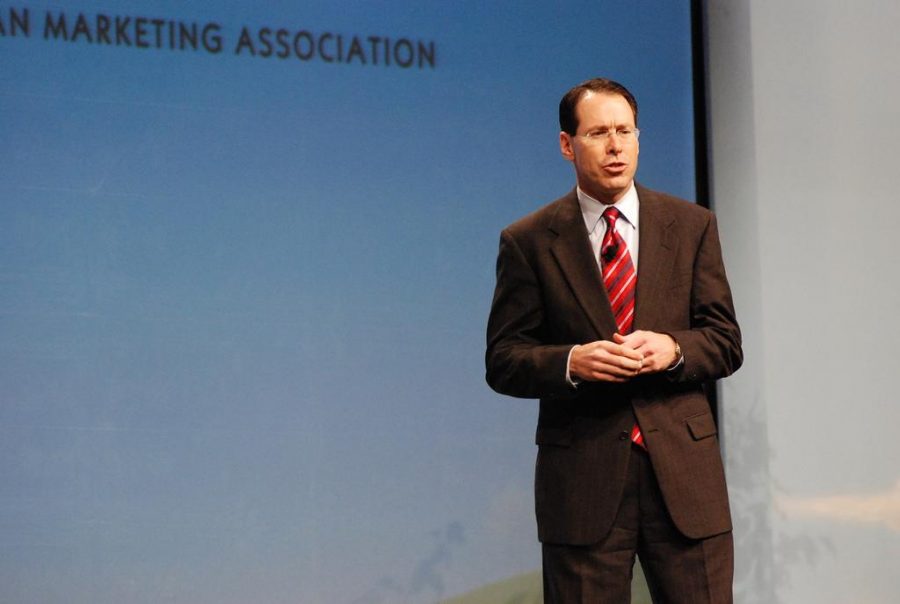In an announcement on October 22nd, AT&T and Time Warner are seeking to merge in one of the largest corporate acquisitions ever conducted. Totaling a stunning $85.4 billion, the combination of the two companies would come at a time when the Obama administration is facing tough criticism over previous corporate mergers. AT&T owns both a sprawling broadband service and DirecTV and currently provides service to millions of Americans. Joining together with Time Warner — which most notably owns HBO, CNN and Warner Bros — has the potential to create an unfair dominance of the market.
This poses considerable issues for consumers interested in paying fair prices.
If these two companies successfully merged, numerous media outlets would be brought underneath the same umbrella. AT&T operates one of the nation’s largest mobile networks, providing service to 141.8 million customers in the United States and Mexico alone. Additionally, there are roughly 380 million citizens able to access AT&T’s 4G network, which has seen enormous increases over the years. Suffice to say, these numbers are quite staggering and they provide insight as to the leverage AT&T would hold if they acquired Time Warner.
Using various programs to attract customers, AT&T would outpace other providers by offering exclusive content to their customers. Although this seems standard, granting increased access to customers would severely impact competition within the market. Yet, as AT&T’s CEO Randall Stephenson argues, “This is not the T-Mobile deal; there is no competitor being removed from the marketplace… Time Warner is a supplier to AT&T. It’s a classic vertical merger.” Thus, the telecommunications giant is attempting to make the argument that the deal would be friendly for consumers. Promising to differentiate acquired services is a slippery slope that could inevitably lead to higher prices for consumers, however.
These acquisitions historically come with immense federal oversight by the Federal Communications Commission (FCC). Often, there are behavioral regulations that prevent direct harm to other competition established; however, AT&T may have found a potential loophole. Time Warner, which owns only a single Atlanta-based TV station, could prevent FCC oversight by not selling the station. Thus, through simply leaving the sale of the TV station out of the deal, both companies could effectively route the deal through the Justice Department.
Instead of drafting behavioral conditions that would prevent AT&T from undercutting competitors, the Justice Department would probably only require both companies to sell off certain assets. Once fulfilled, there would be little stopping the newly merged corporation from offering exclusive deals to customers. While these practices would typically violate measures established by the FCC, the regulatory body could be left entirely out of this $85.4 billion deal. Without specific guidelines from FCC, AT&T could push newly acquired content exclusively to millions of customers in North America. This would mean that other carriers, such as T-Mobile, Verizon and Sprint, would be incapable of keeping up with these promotions.
Regulations imposed by the Justice Department are likely to involve only structural changes instead of crucial behavioral safeguards. This is an issue, as AT&T could outmaneuver these regulations using a concept referred to as zero rating—a process which would allow AT&T customers to access Time Warner content on their phones without using data. Furthermore, AT&T could make it increasingly expensive for competitors to feature Time Warner programming, meaning subsequent price hikes for consumers.
While these two companies are still seeking approval for the merger, it’s absolutely vital for the FCC to be present at the negotiating table. Without direct federal oversight, there is room for unfair market practices, which hurt consumers of other networks. Although AT&T may have discovered a potential loophole that excludes the FCC, lawmakers should pay special attention to this historic deal, as the outcome would make an immediate impact upon the market. While the odds of receiving approval to merge are rather slim under the current administration, if the merger were to occur without significant oversight, one could only expect to see significant impacts on consumers by the end of next year.


